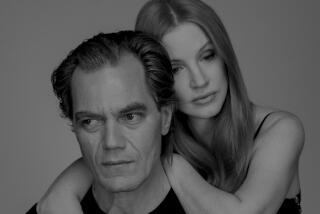Tuck & Patti Sustain Talent as a Twosome
When it comes to longevity as an entertainment-world performing couple, Tuck & Patti have been around a surprisingly long time--closer to the three-plus decades of George Burns & Gracie Allen than the considerably more limited run of Sonny & Cher. Working as a duo for 24 years, they have been a married couple for 21. And watching them in action at Catalina Bar & Grill on Monday night, one could only marvel at their remarkable capacity to triumph over the marriage admonition: “For better or for worse, but never for lunch.”
Their opening set was an impressive display of musicality, balancing each of their individual skills with the symbiotic musical interaction that has characterized their relationship from the beginning. As singer Patti Cathcart pointed, they have built up such a vast repertoire of material that it can be hard to decide what to offer at any given performance. But with the new Tuck & Patti CD, “Chocolate Moment,” just released--the first on their own label--a goodly amount of the set was devoted to material from the album, including Cathcart’s wittily seductive rendering of the title track.
Other tunes ranged from Cyndi Lauper’s “Time After Time” to Bob Dorough’s “Better Than Anything,” with guitarist Tuck Andress enlivening the evening with a long, hilarious introduction to “Early Morning Music Box,” essentially describing it as a kind of accidental composition.
Despite the talent flying in all directions, the heartbeat of Tuck & Patti’s music traces to the now utterly intuitive musical linkage between the pair. Andress’ guitar, marvelous in its own right, is also an integral part of the way Cathcart sings, punctuating her lines, adding counterpoint, driving in tandem with her rhythm. And, vice versa, her singing flows through his guitar phrases, often surprising him with a sudden shift of direction, stimulating his spontaneous creativity.
The only less-than-superlative aspect of the program was the tendency to finish too many pieces with long, extended vamps. While they allowed Cathcart ample room for scatting, their harmonic repetitiveness occasionally became wearying--a musical framework too limiting and too lacking in expressive potential for this otherwise superb musical pair.
More to Read
The biggest entertainment stories
Get our big stories about Hollywood, film, television, music, arts, culture and more right in your inbox as soon as they publish.
You may occasionally receive promotional content from the Los Angeles Times.










